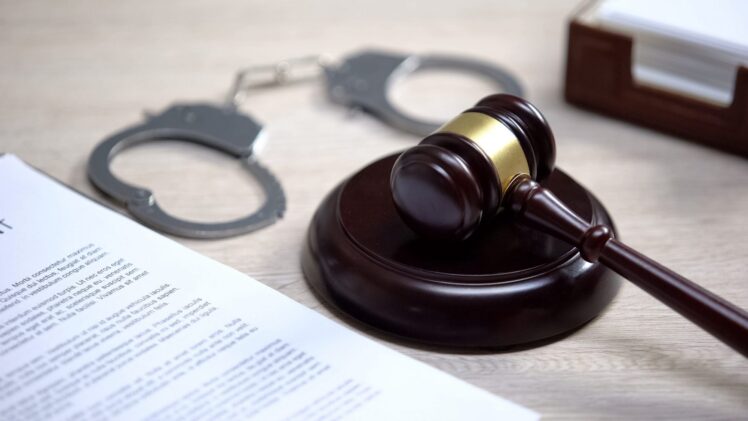Facing A Wrongful Conviction? 7 Legal Tips You Need To Know

Did you recently find yourself facing a wrongful conviction? You’re not alone- but knowing what to do next can be overwhelming. Don’t worry, this blog has you covered. We’ll provide all the legal tips and advice you need to navigate this difficult situation with confidence. Let’s get started!
Steps to Take if Wrongfully Convicted
When facing a criminal conviction, knowing the rights you have, and the steps to take if wrongfully incarcerated is essential. It can leave an individual feeling scared and alone – but it is important to remember that there are options. In order to fight it, understanding how the criminal justice system works and what you can do is key. Here are some steps to take if wrongfully convicted:
- Address your case with an experienced attorney: Working with an experienced attorney like Aswani Datt can provide insight into what legal strategies should be applied in your case and also provide assurance that all of your rights will be protected during proceedings. An experienced attorney will also help build a persuasive defense strategy as well as leveraging existing laws in order to gain the best available outcome given your circumstances.
- Request DNA tests: Requesting DNA evidence plays a primary role in overturning an incorrect or wrongful conviction; however, the type of DNA testing requested depends on the individual’s case. It is important for those facing a wrongful conviction to understand their rights when it comes to seeking evidence review – such as who has access, what type of testing may be used, and whether or not this will delay or expedite the trial process going forward.
- Stay proactive about appealing your case: Rightly or wrongly, being able to appeal a court decision can influence whether or not there is a successful outcome achieved down the line – especially if you have been wrongfully convicted and placed in jail or prison away from friends, families and loved ones. A qualified legal professional should know all of your entitlements surrounding appeals such as filing deadlines, and determining which process of appeal gives you access under law with respect to self-represented litigants filing documents without counsel consultation.
- Research inmate support groups: Utilizing prison support networks can be beneficial for those who have been wrongfully convicted and are currently serving time within correctional facilities across America. Many inmate advocacy organizations today offer assistance on topics such as mitigating financial pressures whilst inside prison; guidance writing appeal letters; mentoring programs for future success; civil service representation for reintegrating back into communities outside prison walls plus much more designed specifically for those facing wrongful convictions.
Types of Wrongful Convictions

Source: unsplash.com
They can take multiple forms, with some involving errors in conducting the trial and others relating to misconduct on the part of someone involved in bringing about the conviction. Both types of wrongful convictions are due to a reasonable doubt and demonstrate there was an injustice within the criminal justice system.
Types of Wrongful Convictions:
Unreliable Eyewitness Testimony: Eyewitnesses positively identified the wrong person in court, resulting in a wrongful conviction.
False Confessions: A person is induced or forced by law enforcement officials to confess guilt for something they did not do.
Lack of Physical Evidence: In cases where an individual is wrongfully convicted due to lack of physical evidence, there was never any proof that he or she committed a crime at all; either there was no direct connection between the suspect and victim, or all physical evidence pointed away from the accused party.
Prosecutorial Misconduct: Improper or reckless behaviour on behalf of prosecutors can lead to false convictions or wrongful incarcerations if they withhold exculpatory evidence (evidence which could have exonerated the defendant from their alleged crime). This includes pressuring witnesses into providing suspect testimony.
Ineffective Assistance of Counsel: An attorney needs to provide adequate legal counsel for his client; this includes thorough investigation for preparing a defence, speaking on behalf of their client at court proceedings and challenging any questionable evidence presented against them by prosecutors. If counsel fails to fulfil these duties then it may result in an unjust outcome, despite any possible innocence on behalf of the defendant.
Legal Rights of the Wrongfully Convicted

Source: pinterest.com
It can turn your life upside down, leaving you feeling anxious and uncertain about the next steps. This article aims to address how to navigate legal protections under the law for those facing the possibility of a wrongful conviction.
The legal rights of the wrongfully convicted vary depending on each case and state laws, however there are some general principles everyone should familiarize themselves with:
1) A Defendant’s Right to Access Evidence: Evidence such as police reports, DNA results, fiber analysis or any other evidence used against a suspect should be released four days prior to trial (or sooner in certain cases). This information must be shared with the defense attorney if requested. It is important that a defendant or their lawyer confirm all evidence has been seen before moving forward with the trial.
2) Due Process Clauses: All individuals facing a trial have the right to due process under both state and federal laws regardless of their crime or jurisdiction. The Fifth Amendment of the United States Constitution states that no person shall “…be deprived of life, liberty or property without due process of law;” meaning each party involved must receive fair treatment within proceedings determined by jurisdiction rules.
3) Defense Attorney Rights: Every individual has the right to be represented by counsel (legal representation). In criminal cases it is mandated that a person possesses legal counsel before standing trial in order to protect them from self-incrimination as safeguarded by the Sixth Amendment (right to counsel). Anyone charged with a criminal offense will have access to an attorney appointed by either an agency or court if they are unable to afford one themselves provided they meet certain requirements and circumstances such as proving financial restraint or mental incompetency.
These are just three of many rights and privileges enshrined in United States jurisprudence concerning individuals wrongfully convicted of crimes in America today. By learning more about what these rights mean for you, you may have an increased likelihood at winning your case and gaining justice through due process prescribed by law enforcement governing bodies everywhere in this nation.
Conclusion

Source: pinterest.com
In any situation where you have been wrongfully convicted of a crime, it is critical that you access the necessary legal resources and work with qualified lawyers to fight for your rights. While wrongful convictions are a travesty inflicted upon countless individuals, it is possible to clear your name if you take steps to protect yourself early on in your case. By seeking out an experienced legal professional, understanding the types of evidence that can shape defendant outcomes in court, and being mindful about asserting your rights when the criminal justice system fails you, you can better equip yourself to face a wrongful conviction.





